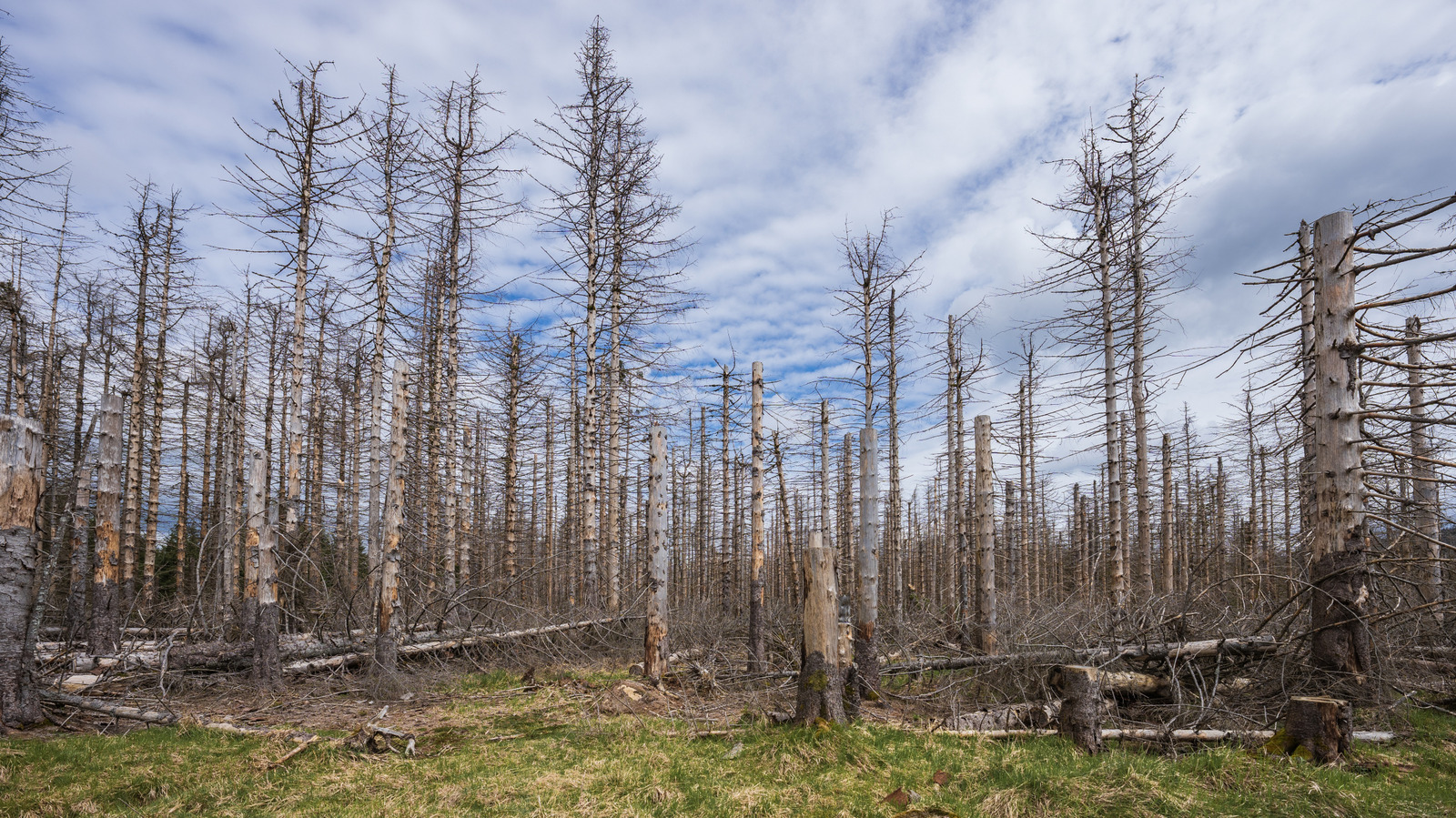Acid rain is a term that refers to not just rain but also other forms of precipitation such as snow, hail, sleet, and fog that has a higher acidity than normal. Acid rain is caused by the burning of fossil fuels, especially from vehicles and factories, and has devastating consequences. It destroys entire forests, kills plants and fish in water bodies, harms crops, and has a negative impact on human health. Being exposed to it or even just breathing in the particles can cause eye and skin irritation, fluid in the lungs, and dental erosion.
Research into what was causing this environmental impact was at its peak during the 1960s through the 1980s. Thanks to efforts by dedicated journalists and scientists, often with considerable pushback from the industries they were accusing of causing these problems, it was proven that acid rain exists, along with the horrible consequences it has.
Unlike with climate change, widespread reform has greatly reduced the dangers of acid rain, especially in Europe and North America. This was achieved through new policies that reduced emissions, as well as the discovery of microbes that could naturally lower the acidity levels of lakes.
How we reduced acid rain
A handful of policies were created in response to acid rain research. The U.S. Clean Air Act of 1990 focused on reducing emissions overall. The Acid Rain Program enhanced this, putting a limit on the amount of sulfur dioxide emissions from the power sector and reducing nitrogen oxides. Efforts by the Canadian Coalition on Acid Rain helped to lower emissions and supported environmental groups.
The Canada-United States Air Quality Agreement of 1991 was also a key policy. Upon realizing that pollutants can travel across country borders and affect one another, the two countries worked together to put an end to it. The agreement was expanded in 2000 with the Ozone Annex which aimed to lower smog emissions.
There was also the discovery of alkali-producing microbes – which can neutralize acid in bodies of water. These microbes already live naturally in lakes, so it was only necessary to stop adding extra acidity into the lakes, and the microbes would clean the water naturally.
Can acid rain return?
Acid rain can return if the protections put in place for our air quality are rolled back. Scientist Gene Likens, one of the researchers who originally proved the existence of acid rain, told The Guardian, “I hope we don’t go back to the old days … I care about the health of my children and grandchildren, I want them to have clean air to breathe. I care about clean water and clean and healthy soil, I want them to have that too.”
Progress has been made with renewable energy, and data from the Environmental Protection Agency (EPA), shows a large decline in air pollutants since 1970. This includes a 92% reduction in sulfur dioxide between 1990 and 2022. Scientists are also looking into hydrogen as a clean energy source for the future. These advancements give hope that even if regulations were rolled back, things would not return to how they used to be.










